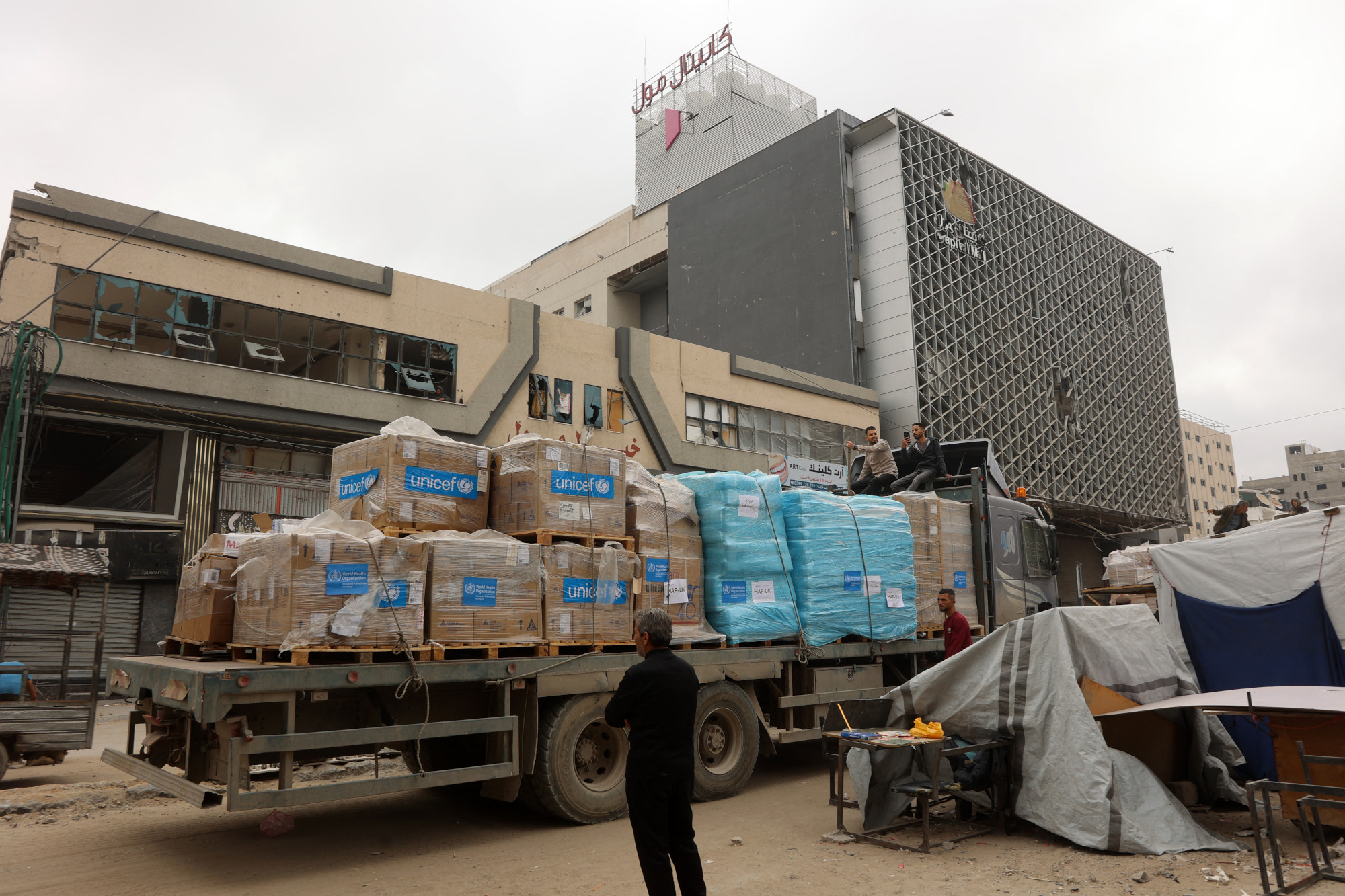British taxpayer funds, earmarked for humanitarian aid in Gaza, may have passed through Hamas-controlled structures, according to a report on Israel’s Channel 12 over the weekend. The core of the allegation is not that the UK sought to support terrorism, but that its aid strategy operated in concert with the very machinery that sustains Hamas’s rule. If that proves accurate, what does it say about the integrity of our government’s foreign assistance and the sincerity of its professed commitment to international law?
A British Consulate-General policy plan warned that ‘UK Aid can be linked directly or indirectly with supporting the de facto authority (Hamas) in Gaza which is part of a proscribed group.’
At the centre of this controversy is the UK’s funding of a large-scale cash transfer programme in Gaza, implemented by Unicef, but coordinated – by Unicef’s own admission – with the Ministry of Social Development (MoSD) in Gaza. That ministry is not a neutral body. It is directed by senior Hamas officials, including politburo member Ghazi Hamad, who in the wake of the 7 October massacre famously praised the killings publicly, and vowed they would be repeated over and over.
A March 2024 ‘photo essay’ on Unicef’s own website describes how its partnership with MoSD was ‘maintained and strengthened’, providing cash to more than half a million Gazans. The UK Foreign, Commonwealth and Development Office (FCDO), in turn, confirmed its role in funding this effort. A spokesperson told Channel 12: ‘We have robust processes in place to prevent diversion of aid. No UK funding goes to Hamas.’
But how can they be so sure? That is precisely what now deserves scrutiny. Internal FCDO documents, obtained through NGO Monitor’s investigation, confirm that officials understood the MoSD’s affiliations. One risk matrix accompanying a British Consulate-General policy plan warned that, ‘UK Aid can be linked directly or indirectly with supporting the de facto authority (Hamas) in Gaza which is part of a proscribed group.’ Yet the identified concern was not one of legal or national security exposure. The document instead classified it merely as a ‘reputational’ risk. Indeed, it is fair to assume the UK’s reputation and authority when criticising Israel’s compliance with international law would be destroyed if it were found to be indirectly funding the proscribed terrorist group Hamas, just after it slaughtered 1,200 people in Israel. But the UK used this funding track all the same.
The question of UK aid money being diverted to Hamas becomes all the more pressing when one considers the UK’s obligations under UN Security Council Resolution 1373, a binding measure adopted under Chapter VII of the UN Charter. It requires all states to ‘prevent and suppress the financing of terrorist acts’ and to ensure that ‘any person who participates in the financing… of terrorism is brought to justice.’ There is no exemption for indirect, unintentional, or reputationally inconvenient support. This resolution is not simply advisory – it creates an affirmative duty on the UK to stop its funds from reaching terrorist hands, even through intermediaries.
The chain of disbursement at the heart of this matter is precisely where risk accumulates. The UK funds Unicef. Unicef coordinates with the MoSD in Gaza. The MoSD in Gaza is run by Hamas leaders. These actors help identify aid recipients and manage local logistics. The UK government claims to vet Unicef, but an FCDO official admitted – under oath in legal proceedings on a separate case – that it does not vet subcontracting partners when working through similar frameworks, such as the Norwegian Refugee Council. Is it reasonable, then, to believe that the Unicef case is immune to the same vulnerabilities?
When I posed these concerns directly to the FCDO in October 2023, shortly after the Hamas attacks, I asked how aid would be safeguarded, through which organisations it would flow, and how the UK would comply with its international legal obligations. The response was vague. I was told aid would go through ‘trusted partners’ and that oversight would be ‘rigorous’. But the documents that have since emerged raise precisely the opposite question: did those assurances reflect a genuine capacity to control where the money goes, or were they detached from operational reality?
If our government now believes that everything is functioning as intended, why would it not welcome a full and independent review to establish how funds are being distributed, where oversight is breaking down, and whether the system might be supporting terrorism? If the systems truly are sound, why not have transparency? The government’s denials have grown louder as scrutiny has increased. But denial is not diligence. And confidence is not compliance.
We must now ask: can the UK credibly maintain that none of its funding reaches Hamas, when its own internal assessments concede that such a link is a plausible reputational risk? Can it continue to castigate Israel for alleged violations of international law while knowingly exposing itself to the same charges? What this episode confirms is that Hamas is not only a terrorist organisation, but also an expert manipulator of western systems. It exploits the infrastructure of international aid, leverages the language of human rights, and inserts itself into the spaces where goodwill meets governance. Hamas has shown again and again that it will use any opening – any institution, any ambiguity – to advance its agenda. Britain’s desire to help has not merely been misdirected; it has been weaponised as a strategic asset. Will Britain now confront that with the seriousness it demands – or keep averting our eyes as our own hand is guided, unknowingly or otherwise, into sustaining precisely what we claim to oppose?









Comments